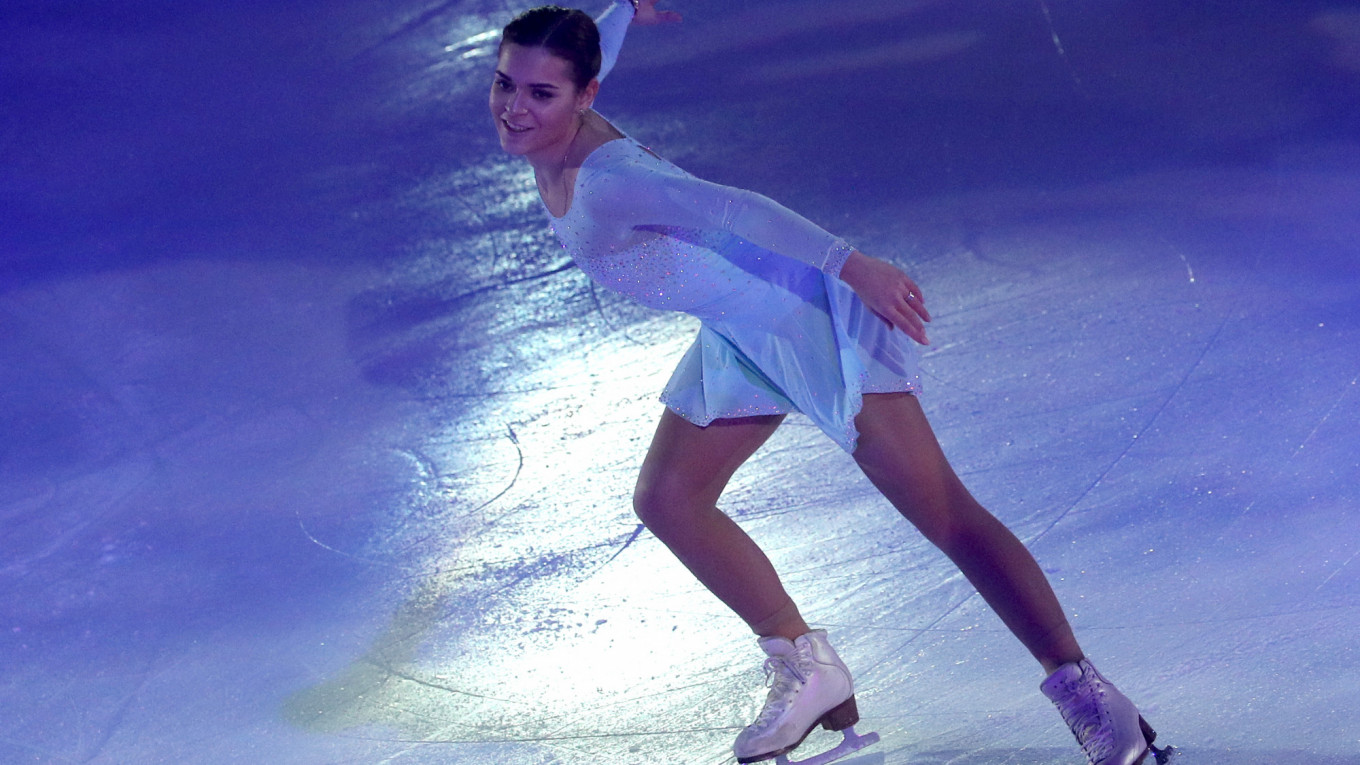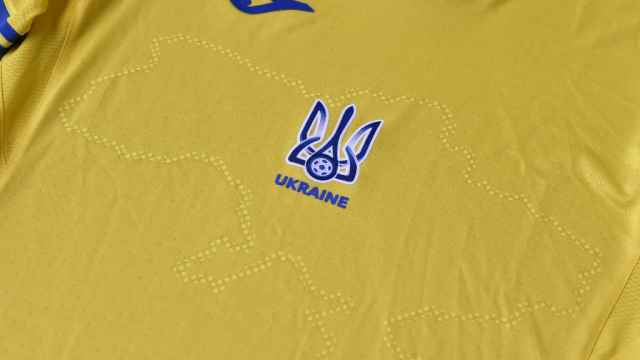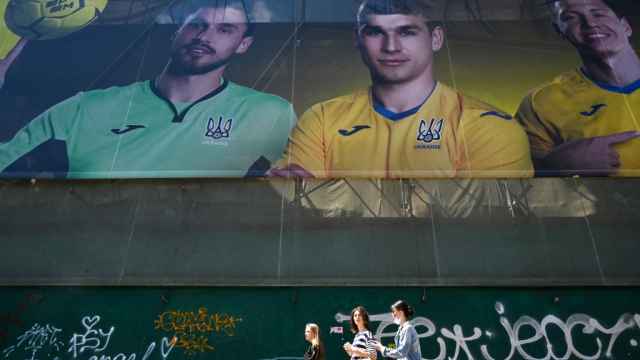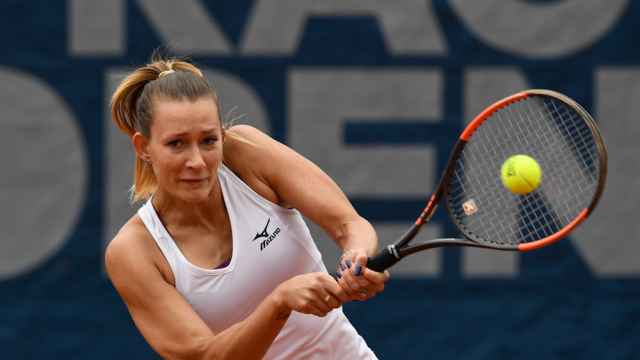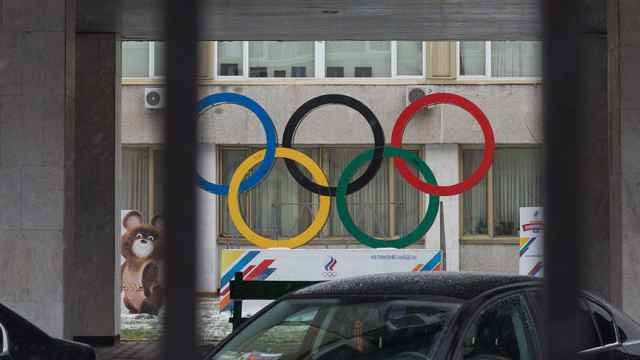Although competitive figure skating is a relatively young sport, Russia is already well-established as a powerhouse of the icy stage. In the lead-up to International Women’s Day and as skater Adelina Sotnikova has just announced her retirement, we look back on some of the women who have defined Russian and Soviet skating in the past century.
Yulia Lipnitskaya
Yulia Lipnitskaya was an icon of the 2014 Sochi Olympics, where her free skate to the theme of “Schindler’s List” led Russia to team gold. Born in 1998 in Yekaterinburg, Lipnitskaya is the youngest Russian athlete to win an Olympic gold (at age fifteen) and the youngest woman to ever win an Olympic gold in figure skating under modern rules. She retired from the sport in 2017 amid a battle with anorexia, and is now a coach at the Academy of Champions in Moscow.
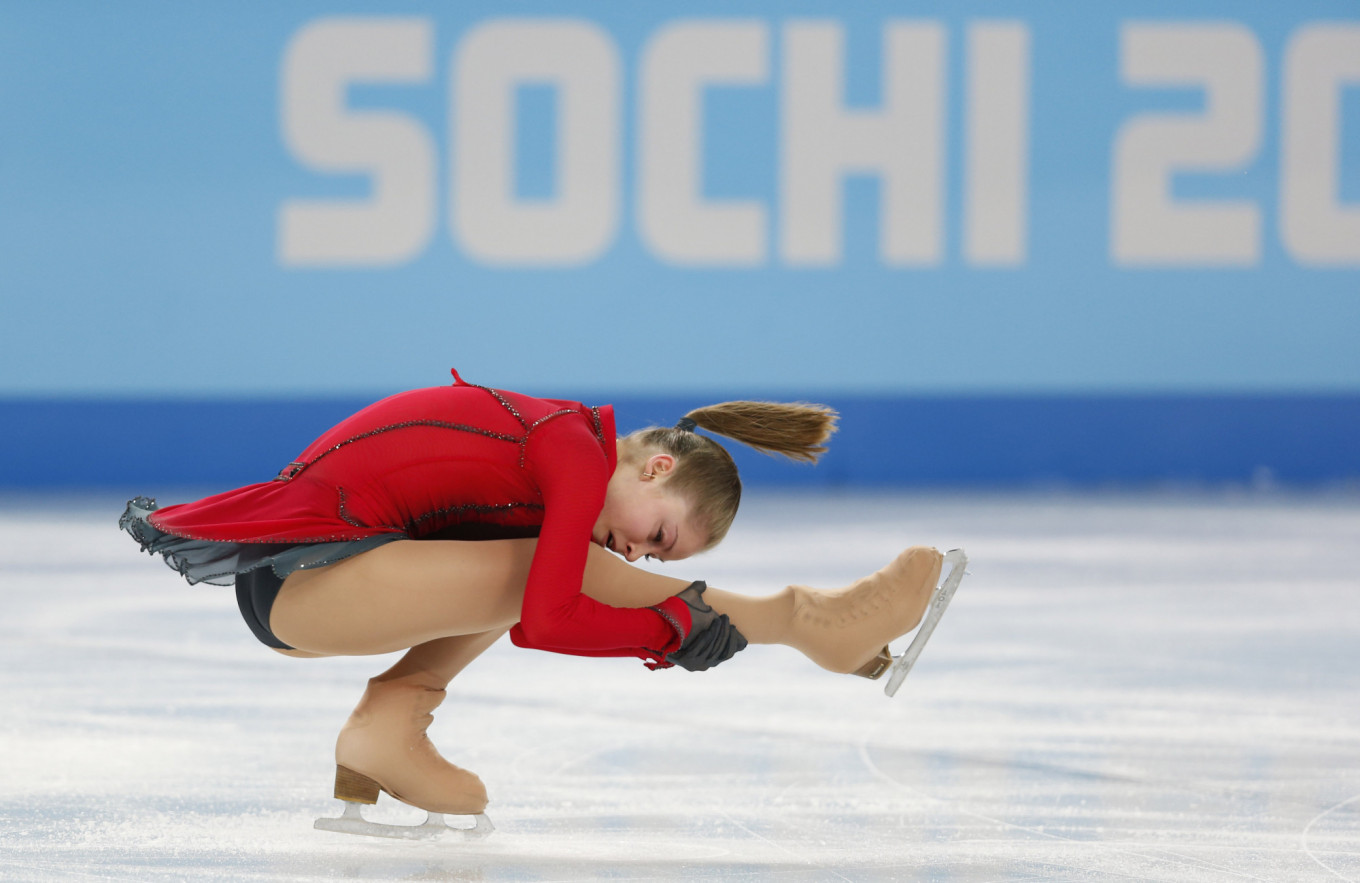
Irina Slutskaya
Two-time Olympic medalist Irina Slutskaya was Russia’s skating superstar of the early 2000s. Born in Moscow in 1979, she became the first Russian woman to win a European title (1996), a feat she would accomplish a record seven more times before retirement. She is the first woman to land a triple lutz-triple loop combination. She retired from the sport in 2006 with both a silver and bronze individual Olympic medal and currently serves as a TV host and deputy of the Moscow Regional Duma from the United Russia party.
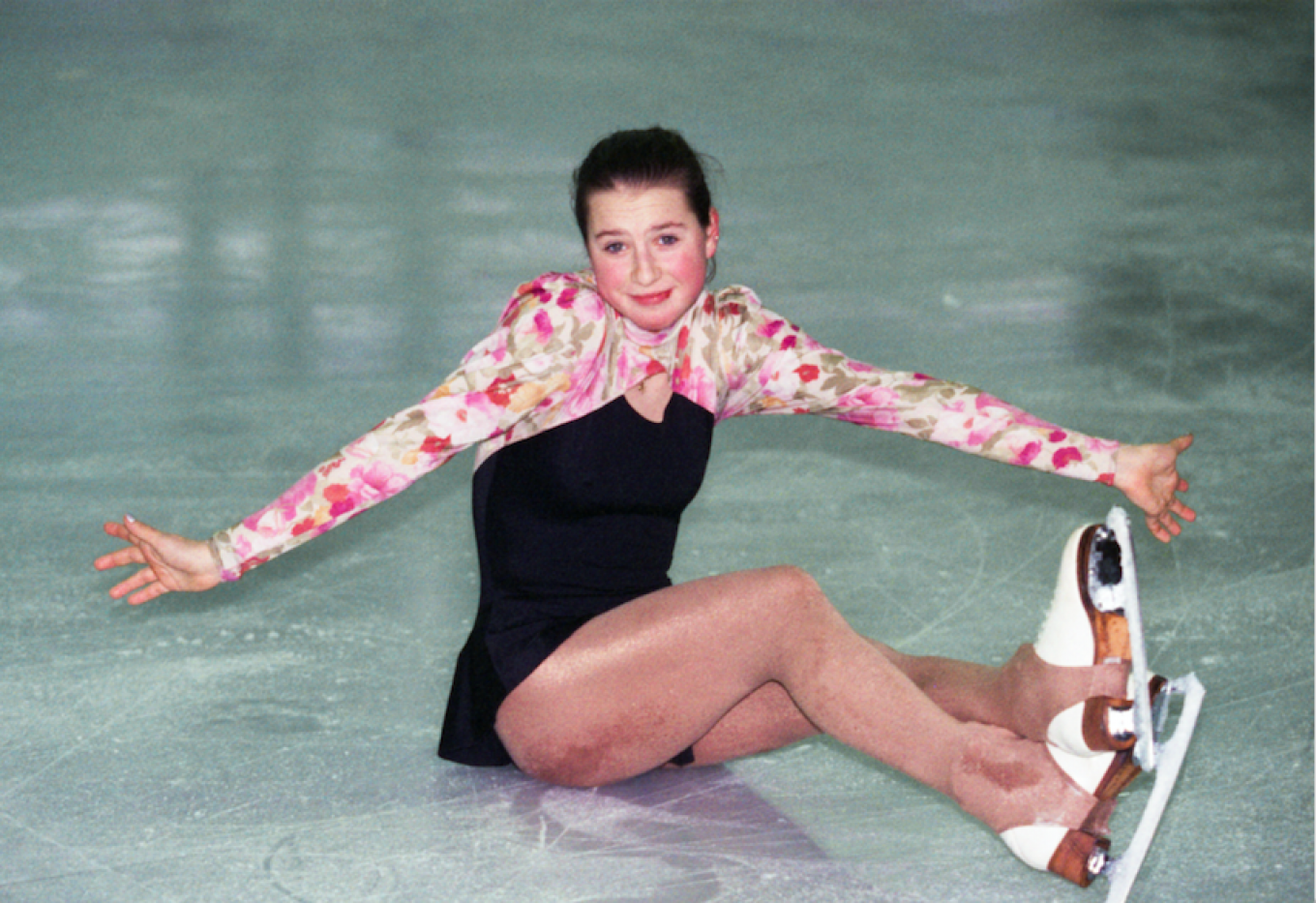
Oksana Baiul
Born in 1979 in Dnipropetrovsk, Ukrainian SSR, Oksana Baiul is most often mentioned as the skating wild card that upset Nancy Kerrigan to win the 1994 Olympic gold medal. Coming from a background of little stability, and with Ukraine struggling economically after the dissolution of the Soviet Union, Baiul chose to commercially tour the United States following her 1994 Olympic victory. It was at this time that her troubles with injuries and alcohol abuse began, and she would not compete again. She has resided in the United States for over 20 years, and after overcoming her problems with alcoholism she has continued to skate professionally for television and stage performances.
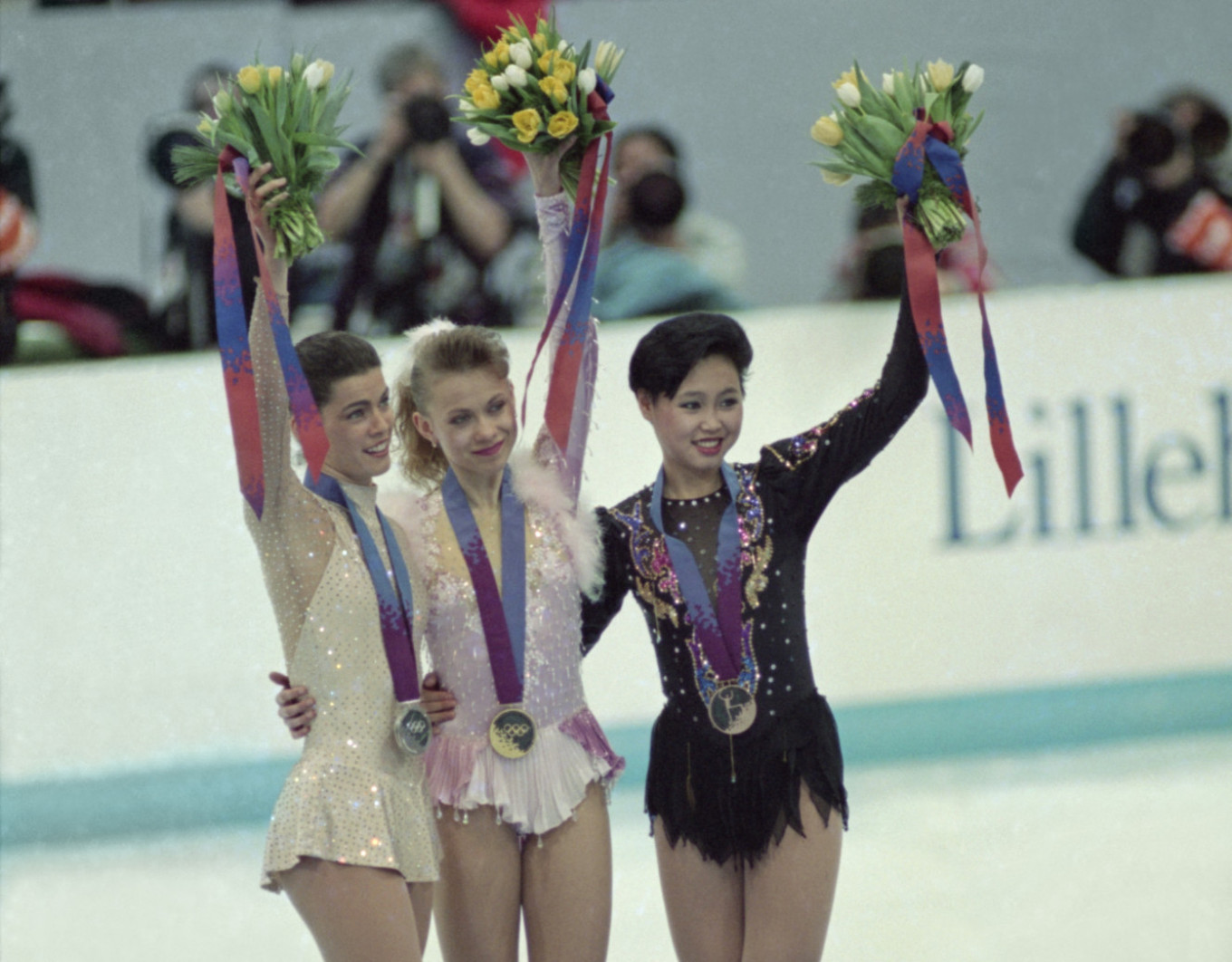
Ekaterina Gordeeva
When Moscow-born Ekaterina Gordeeva began skating in 1975 at the age of four, she had to wear multiple pairs of socks inside too-big skates because smaller sizes weren’t available in the Soviet Union. At age eleven she was paired up with skater (and future husband) Sergei Grinko, with whom she would win gold in four World Championships (1986-90) and two Olympic Games (1988 and 1994). Grinko died of a heart attack in 1995 at age twenty-eight, after which Gordeeva continued on to a solo career in performance and advertising. She currently works as a coach and resides in California.
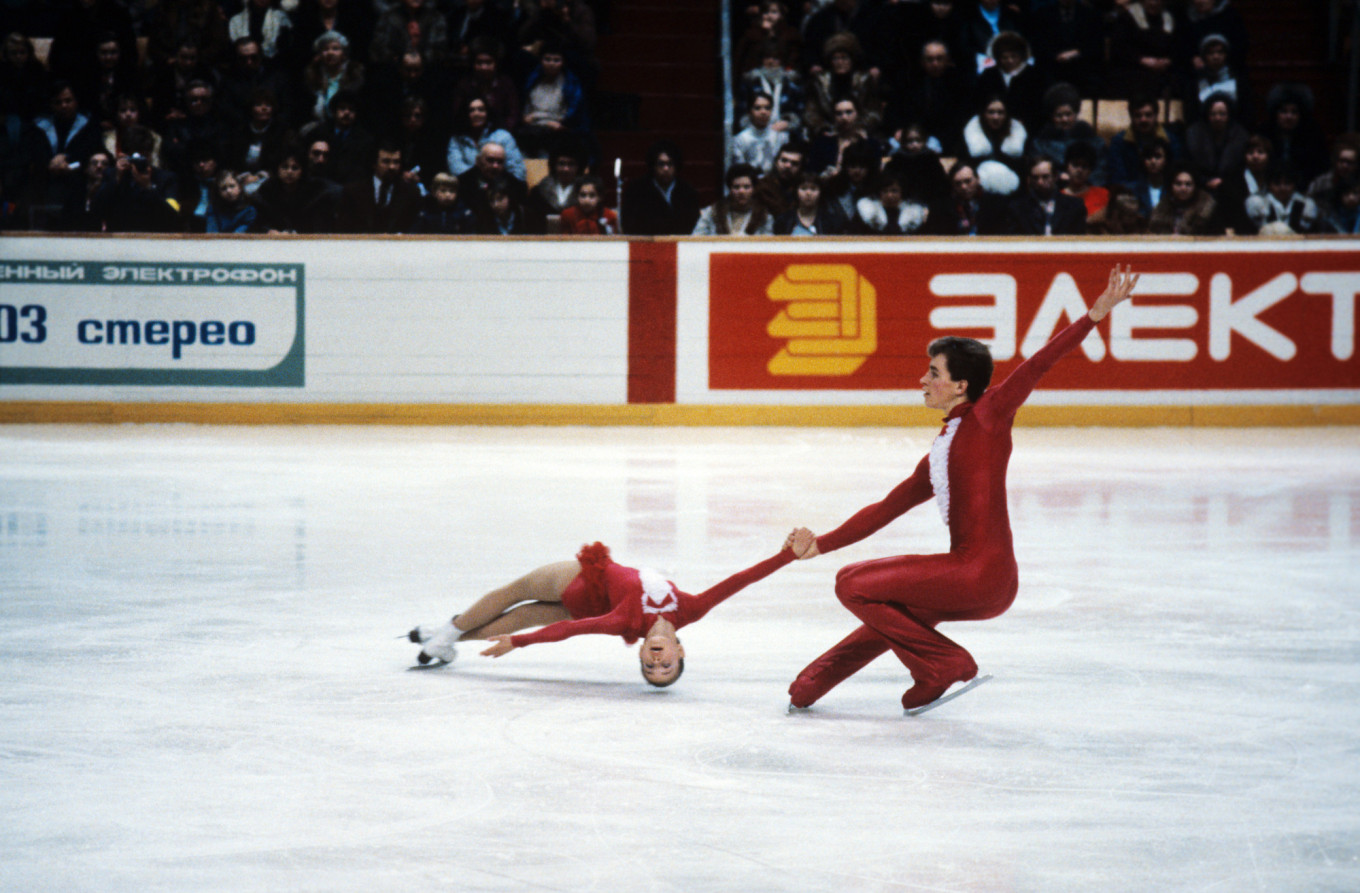
Ludmila Belousova
In 1964 Ludmila Belousova and her husband Oleg Protopopov would begin a 40-year streak of Olympic gold medals by Russian figure skating pairs. Born in 1935 in Ulyanovsk, Belousova began skating at the relatively late age of sixteen and continued professionally into her seventies. Both she and her husband defected to Switzerland in 1979, and would receive Swiss citizenship in 1995. Belousova died in 2017 at the age of eighty-one.
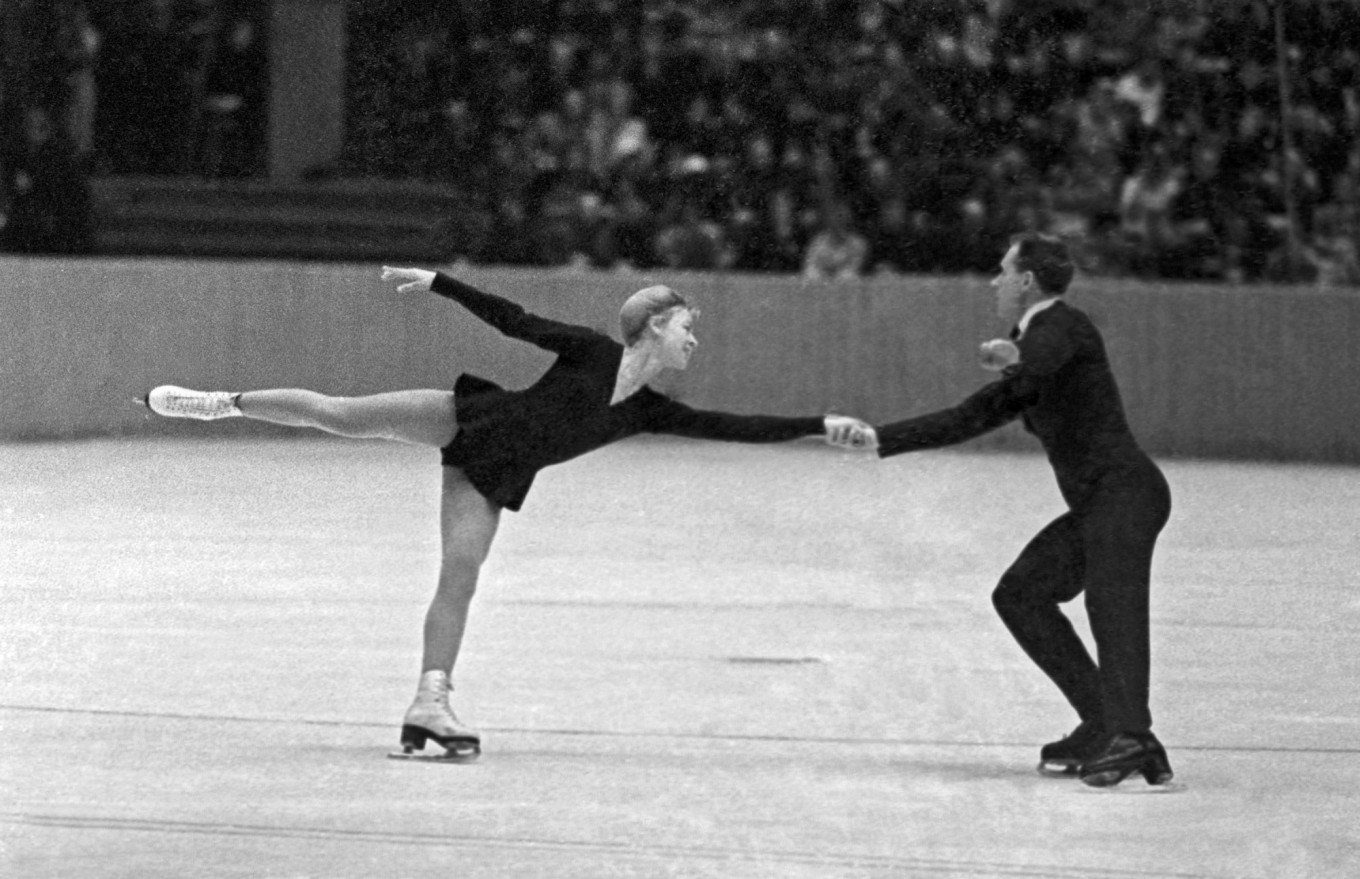
A Message from The Moscow Times:
Dear readers,
We are facing unprecedented challenges. Russia's Prosecutor General's Office has designated The Moscow Times as an "undesirable" organization, criminalizing our work and putting our staff at risk of prosecution. This follows our earlier unjust labeling as a "foreign agent."
These actions are direct attempts to silence independent journalism in Russia. The authorities claim our work "discredits the decisions of the Russian leadership." We see things differently: we strive to provide accurate, unbiased reporting on Russia.
We, the journalists of The Moscow Times, refuse to be silenced. But to continue our work, we need your help.
Your support, no matter how small, makes a world of difference. If you can, please support us monthly starting from just $2. It's quick to set up, and every contribution makes a significant impact.
By supporting The Moscow Times, you're defending open, independent journalism in the face of repression. Thank you for standing with us.
Remind me later.



